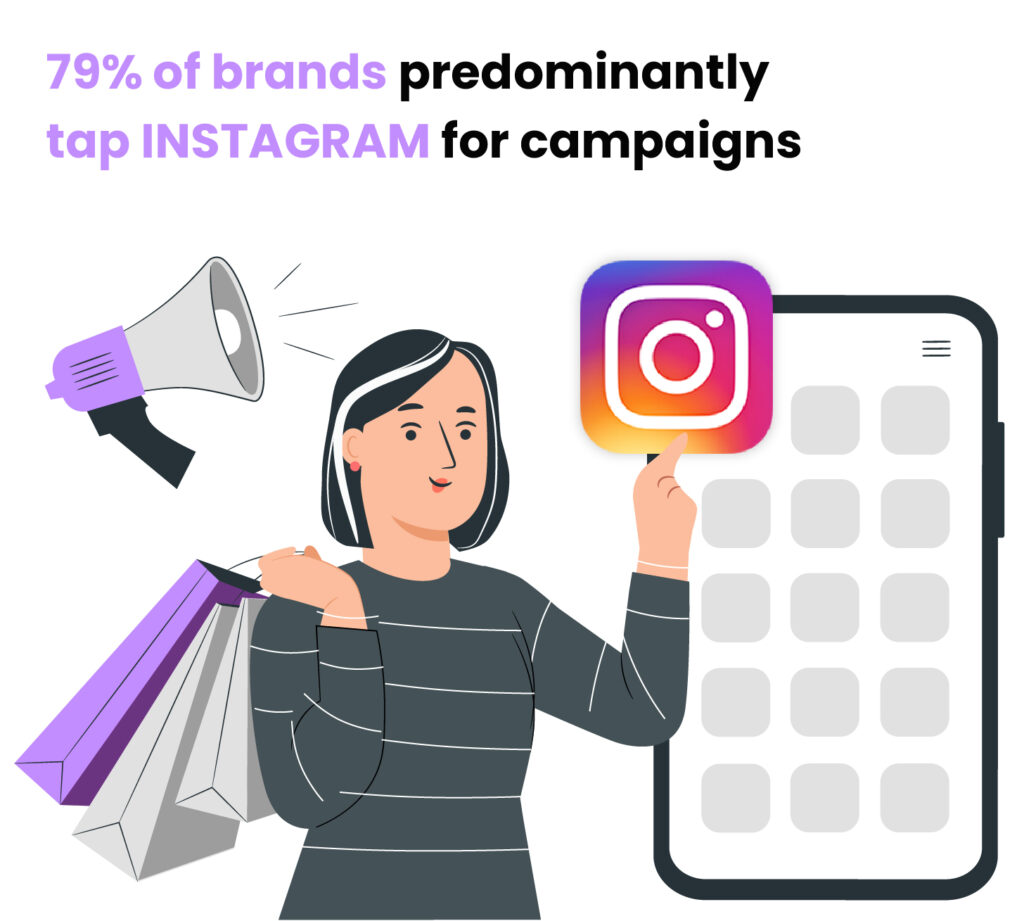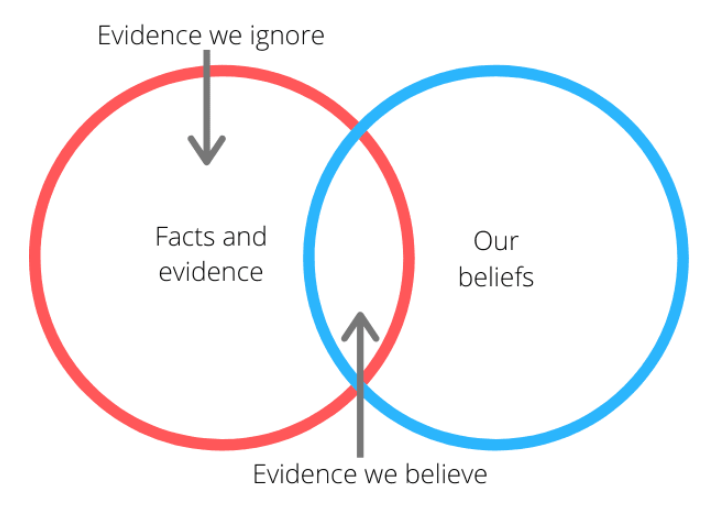Using affiliate marketing as a way to make money online is without a doubt a solid strategy. There is fierce competition, however. Using the best strategies and working hard for every sale will all but ensure that your business grows.
This may be a challenging task.
It is possible to increase your affiliate marketing results and revenue by applying some… principles from psychology!
In this blog post, we will examine these principles to better understand how they relate to affiliate marketing.
Fasten your seatbelt: we’re starting right now.
1. Use scarcity in your affiliate marketing strategy
As a result of the scarcity principle, people perceive scarce things as more valuable than plentiful ones. For example, people are more likely to purchase a product if its availability is limited or will run out of stock soon.
Online retailers have been aware of this fact for years, so they often say “only three left” or show an image of someone else looking at the last item on the page. By making their products seem rare, businesses can increase conversions.
As an affiliate, you can use this psychological strategy too!
End your pitch by saying there are only a few spots left before everything sells out instead of talking about how easy and effective getting a particular product is.
In one of their email marketing campaigns, Google did exactly that. They stressed that the deals they prepared were truly special, yet limited.
2. Empower your affiliate marketing strategy with reciprocity
We feel obligated to return a favor if someone does something for us.
This is called the reciprocity principle.
It is for this reason that people say “thank you” so often whenever they receive a gift or assistance from another person. Because of this psychological rule, they feel compelled to give back. You can use this for affiliate marketing as well! You can start out by giving your audience some free information, then at the end offer them an upgrade.
As an example, if your blog post contains 20 tips on increasing sales conversions but only one will be available after others read it, ensure the buy-button is near those last few points but not before any of them are shared. Due to the reciprocity rule, if readers see what other benefits they could get by interacting with you or your content, they are more likely to purchase the products you share or promote to them.
3. Make the most of color psychology rules
The use of color psychology has been popular among online retailers for some time now. That’s how they know what color to use on their sites and on their products themselves to make customers more likely to buy them.
If you are interested in applying these rules yourself to affiliate marketing, here are a few hints for you!
When marketing food, warm colors such as orange and red are wise since they evoke hunger pangs in the viewer. Ads with such hues can cause people to feel hungry, which in turn makes them want to buy whatever product is being offered even more than they did before.
Cool colors such as blue, on the other hand, create a sense of calmness and relaxation.
Nature – ecological products, air, and the environment are intuitively associated with green. It’s interesting to learn that green is both associated with creativity and stimulates it. Green is a good choice if your offer deals with nature in any way.
4. Use authority in your strategy
The authority principle states that we tend to follow those within our same group or locale. This makes marketing easier since it only takes mentioning someone who uses something and asking if they want the same!
Affiliate marketing can take advantage of this as well. Many ads tout how celebrities use one specific brand of makeup products, even though most customers don’t know them personally.
Although most existing and potential customers are unaware of this information, knowing other famous people already bought those items before they were advertised on social media or discussed during press conferences subconsciously influences their purchasing decisions.
And that, simply, makes people want the exact same thing.
5. Make the most of loss aversion
Loss aversion occurs when a person does not want to appear inferior to others, and so they remain with what they have rather than take the risk of losing it.
This can affect our decision-making processes in a variety of different ways and is why affiliate marketers must keep it in mind while working on their campaigns.
Perhaps you could give away something for free (like an ebook) and then offer another bonus or offer if someone purchases through an affiliate link soon after downloading those items. This makes them feel as if they’re missing out on something more valuable, which encourages them to take action right away instead of waiting around before buying anything else from you.
6. Leverage confirmation bias
According to confirmation bias, we focus on information that confirms our existing belief while ignoring contrary evidence. This makes marketing easier since marketers know that their audiences will only read content that supports the claims they make in their copy or descriptions.
Oftentimes, customers aren’t willing to feel like they’ve done something wrong if someone tells them not to eat junk food, but they still do and continue to do so until something changes.
If you buck this trend, readers may believe your message more even if it doesn’t match up completely to other sources out there.
And yes, you’re correct – your affiliate marketing offer should appear exactly within the “Evidence we believe” section.
7. Make the most of the foot-in-door affiliate marketing strategy
Using the foot-in-the-door technique, you get people to agree to a small request in return for them going along with something bigger later on!
Let’s say you want someone to buy a time management tracker but they don’t usually discuss such things or aren’t yet interested in the product (even though they need it).
As opposed to asking “Would you like to buy this great tracker?” you can ask “Do you want to save as much as an hour per day?”. By discussing the product, you can allow the potential customer to respond to your original question.
Once you have this information from them, you can then bring up what else you wanted in the first place without coming off as pushy or difficult by asking right away!
8. Use FOMO
We experience FOMO, also known as Fear of Missing Out when something important is happening right now that we will not be aware of until later on.
That’s a huge advantage in affiliate marketing, though.
Imagine, for example, that you offer a free ebook as a bonus gift but only if it is downloaded by midnight that day.
In any other case, they would probably wait, forget, or save your offer for later. The addition of “limited” and the timeframe for when the offer ends, however, encourages them to take action. And take it NOW.
Your affiliate marketing campaign engages those with FOMO, which makes them more likely to participate when others might not. Don’t be afraid to try such a campaign; you might be surprised at the results!
9. Check Paradox of Choice
A paradox of choice occurs when someone has so many options to choose from that they end up not taking any action at all.
The psychological principle of this may be tricky for affiliate marketers, but understanding it can help you save valuable time, money, and resources.
People might get overwhelmed by the sheer number of products offered through affiliate links, so it makes sense to review those pages and remove anything that is not essential. As an affiliate, if you work with several brands and industries, it’s better to create different landing pages for each vertical than to go with a single landing page for everything.
Marketing efforts can be improved by reducing a consumer’s time to consider their purchase and looking up other stores before making a final decision, resulting in higher conversions overall!
10. Use Social Proof as an integral part of your strategy
There are various niches of marketing where social proof is used and affiliate marketing is one of them.
Social proof is when other people’s opinions influence our decisions, especially if there are many of them around.
Suppose a customer is thinking about buying a new laptop because their current one isn’t working too well. If they notice everyone in the store is buying the same item then it makes sense to go along with their choice instead.
Companies and affiliates in affiliate marketing gather and display positive customer reviews and testimonials for the same exact reason – to build trust and encourage sales. Don’t forget to incorporate ratings and reviews when crafting your affiliate offer, then!
Over to you
Do you have to use all these psychological tips and tricks? Not at all. Should you do it, though? Without a doubt.
You can revamp your affiliate marketing strategy in a flash if you follow some psychological principles. Why not actually test it out and see if it resonates with your product and audience?
Frequently Asked Questions
Are influencers important in affiliate marketing?
Affiliate marketing accounts for more than 60 percent of global sales. Most companies say the majority of their affiliates are social media influencers.
What colors are best for advertising food?
Warm colors such as orange and red are wise since they evoke hunger pangs in the viewer.
Share this article
Seven Deadly Sins You Can Make When Starting Affiliate Program
Discover the top 7 mistakes to avoid when starting an affiliate program to ensure success. Learn how buying quality software, offering competitive commissions, and treating affiliates as business partners can elevate your strategy. Enhance communication, collaboration, and content quality with essential tools like Profit Margin Calculator and Google Analytics. Avoid these pitfalls and master the art of affiliate marketing for a thriving campaign.
Affiliate marketing for beginners
Discover the essentials of affiliate marketing for beginners with Post Affiliate Pro. Learn how to build an audience, create engaging content, and use marketing channels to earn commissions. Unleash your passion for your niche, showcase products through video, and boost sales with special deals. Dive into the world of affiliate marketing today!
CRINGE Worthy MISTAKES Of New Affiliate Marketers
Discover the cringe-worthy mistakes new affiliate marketers make and learn invaluable tips to succeed. Avoid spamming, build trust, and master one strategy to overcome shiny object syndrome. Affiliate marketing is a marathon, not a sprint—never give up! Watch Judd Albring's video for insights and start your affiliate journey on the right path.
8 affiliate marketing scams to avoid in 2025
Discover the top 8 affiliate marketing scams to avoid in 2023 with Post Affiliate Pro. Learn how to spot tactics like fake products, get-rich-quick schemes, and more. Stay informed to protect your business and reputation from fraudulent activities in this booming industry.
The 7 most common affiliate marketing questions answered
Discover the answers to the 7 most common affiliate marketing questions with our comprehensive guide! Learn how to get started, choose the right niche, and find reputable programs. Whether you're a beginner or looking to boost your affiliate earnings, this resource will guide you toward success in the affiliate marketing world. Visit now to unlock the potential of affiliate marketing!
13 Tips To Successful Affiliate Marketing
Discover the top 13 strategies for successful affiliate marketing and unlock your potential to earn online. Learn how to build trust, choose the right products, and engage your audience effectively. Perfect your timing and diversify your promotion platforms to maximize your earnings. Visit Post Affiliate Pro for expert tips and start your journey to affiliate marketing success today!


















